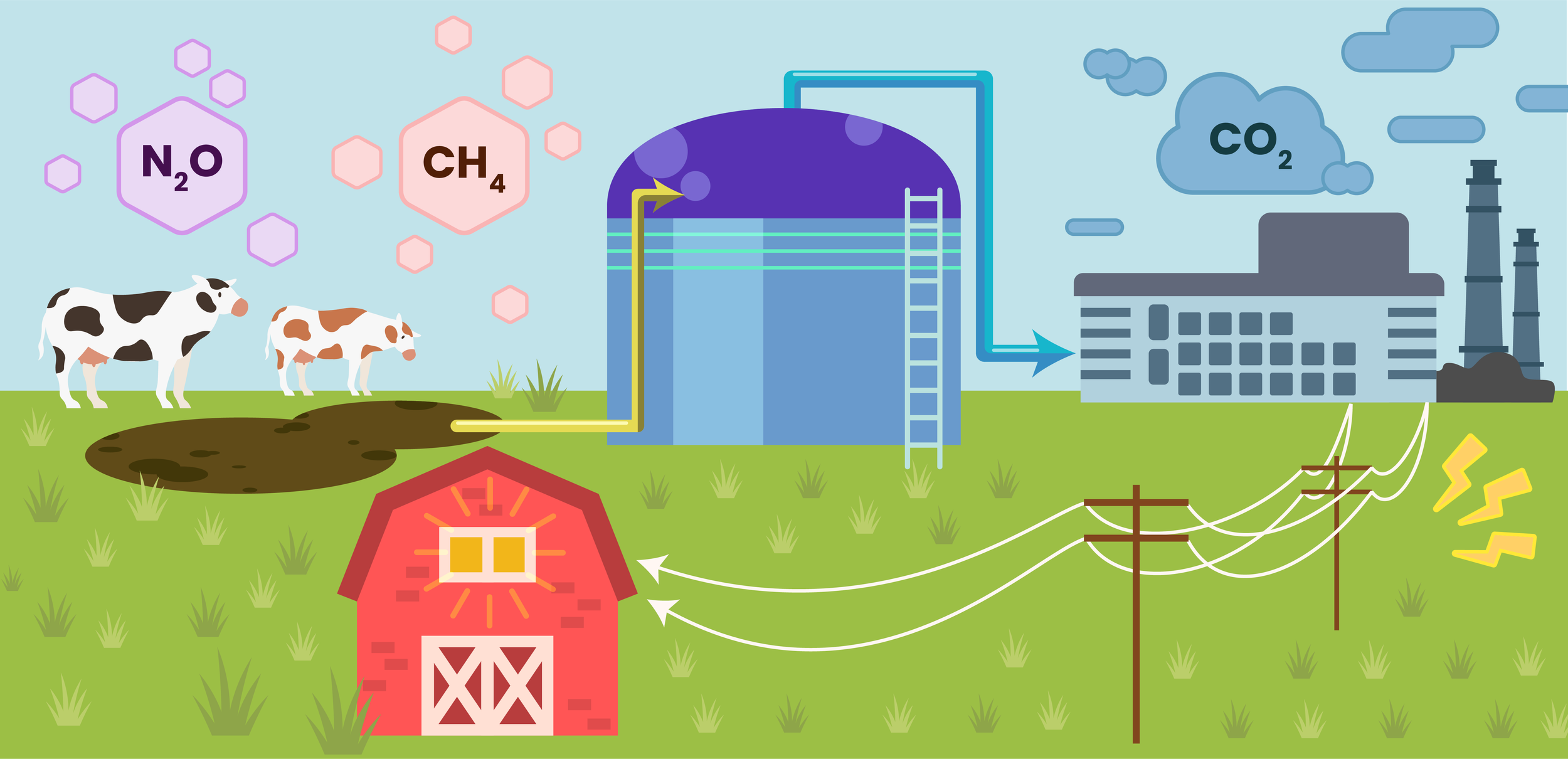Waste to energy
Anaerobic digesters convert manure and food waste into renewable energy, while also reducing greenhouse gas emissions and improving water quality
Bioenergy from anaerobic digestion of waste offers a technological solution to climate change, while also addressing the waste management problem in working landscapes
Working landscapes generate large amounts of organic waste (food waste, livestock waste, human waste) that contribute to methane emissions, while adversely affecting human health, water and air quality. For example, landfill waste contributes to 20% of Canada’s methane emissions.
Anaerobic digestion is the process of converting organic waste into usable products, such as renewable natural gas (RNG), as well as fertilizers that can be applied to crops. Such technologies can provide a revenue opportunity, while reducing GHG emissions and nutrient pollution from improper waste management.
“Our research takes a uniquely integrative approach—one that merges nutrient management with water quality, energy economics, air quality and climate policy—to offer novel solutions for challenges at the intersections of these systems. Specifically, we will investigate the improved use of manure as both a fertilizer and an input to the biogas energy system, and then quantify its impact on water quality and greenhouse gas emissions. By directly exploring the interconnections between water quality, environmental change and energy sustainability, we are challenging the current research paradigm, and offering a solution pathway to more efficient allocation of our most vital resources.”
Professor Nandita Basu, Principal Investigator, SOLUTIONSCAPES
How can we turn the waste problem into a climate and water solution in working landscapes? What are the costs and benefits? Can we identify optimal locations of biodigesters in the landscape that can access multiple waste sources, and thus be economically viable while protecting our enviroments?
What will SOLUTIONSCAPES do?
SOLUTIONSCAPES will enable the identification of optimal locations for biodigesters across the landscape. We will develop spatial optimization models of the waste distribution and storage system that optimally re-distributes waste for biogas reactors and digestate to cropland, by balancing priorities for financially viable farms, renewable energy, clean water, clean air, and meeting climate targets.




